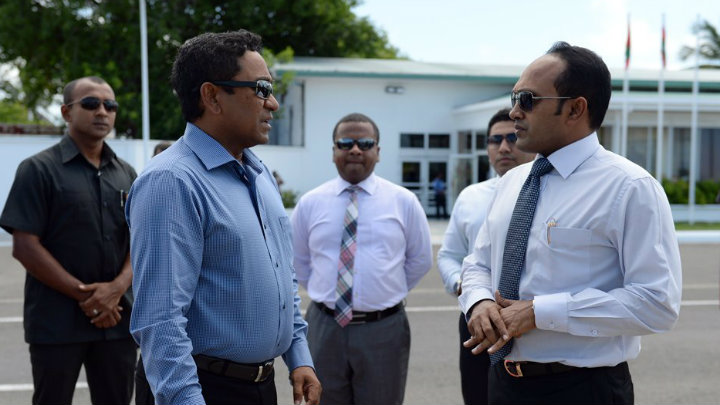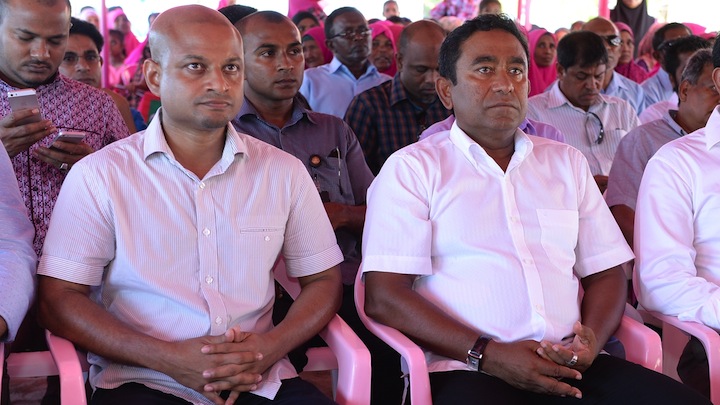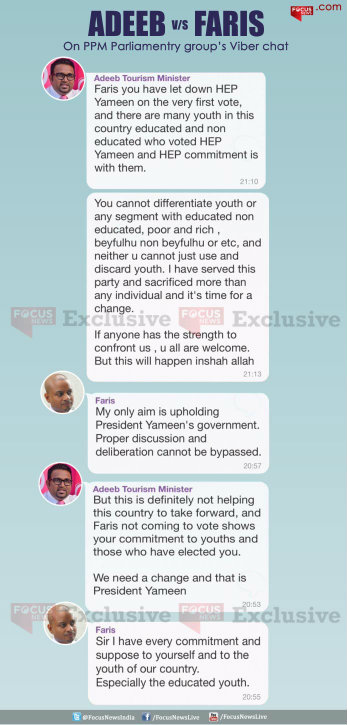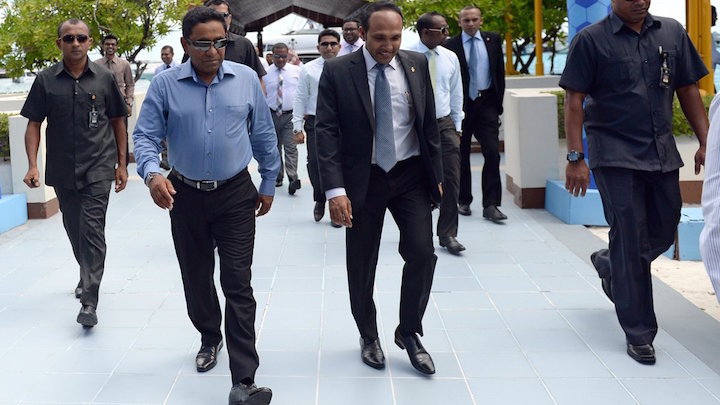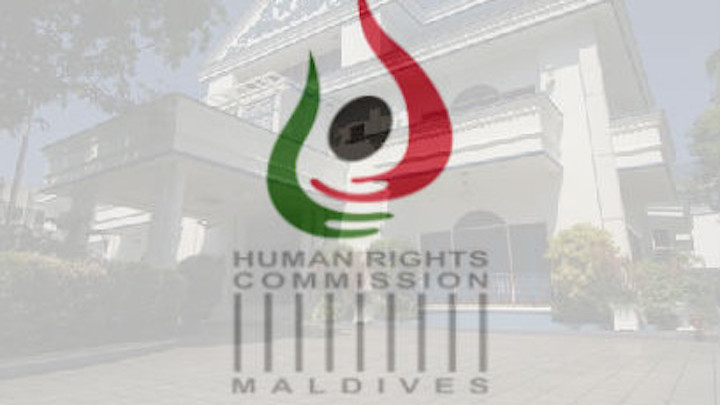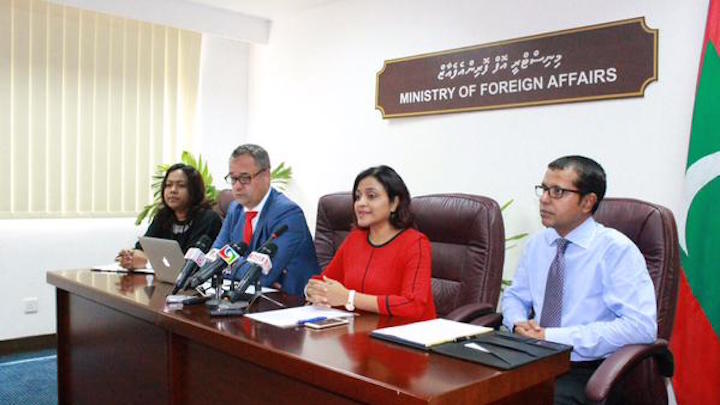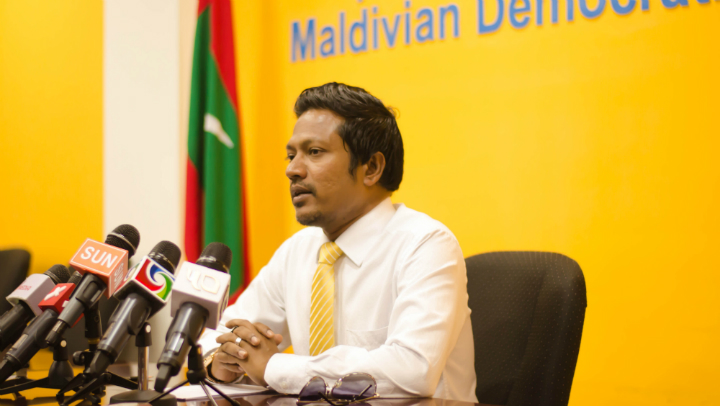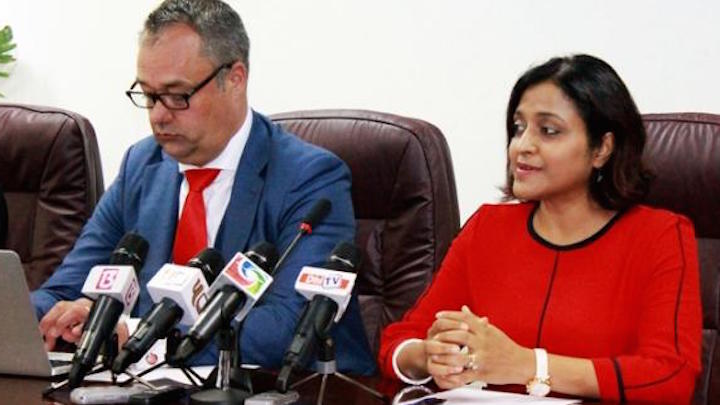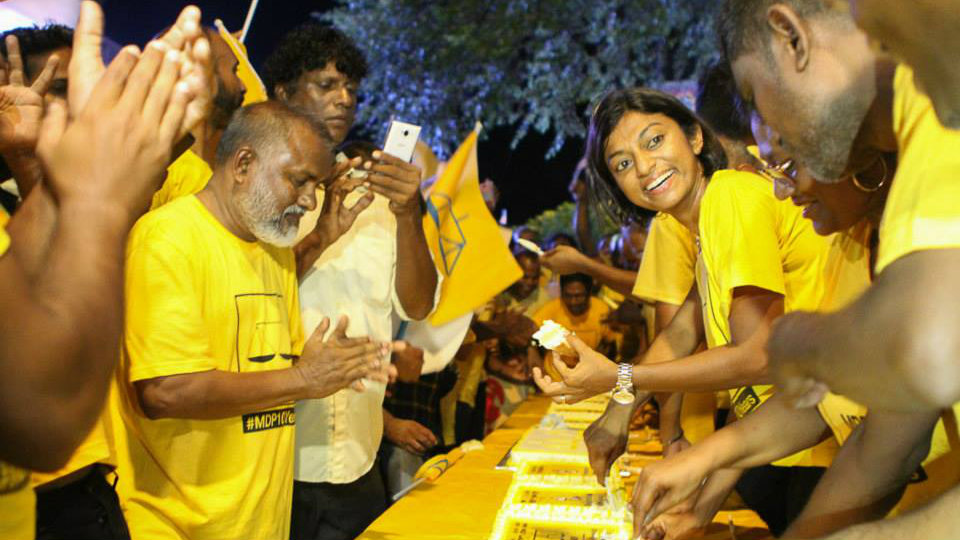The vice president Dr Mohamed Jameel Ahmed left the Maldives last week amid preparations by his Progressive Party of the Maldives (PPM) to impeach him. After two days in Sri Lanka, Jameel reportedly left to the UK on Saturday without President Abdulla Yameen’s permission.
Some ruling party MPs say Jameel has fled the country.
The PPM’s justifications for Jameel’s impeachment are vague. Some MPs have publicly accused him of disloyalty and incompetence. Others have said tourism minister Ahmed Adeeb is more suited for the job. “We do not want to hide what we want to do anymore. We are going to appoint tourism minister Ahmed Adeeb as the vice-president before July 26,” one PPM MP has declared.
Meanwhile, rumors that President Yameen is fatally ill continue to persist. Opposition politicians say Yameen is seeking a trusted deputy ahead of a major surgery.
What is going on?
Impeaching a state’s vice president is no small matter.
Jameel was elected. The election may not have been free or fair, but its outcome was largely accepted. By many accounts, Jameel was the face of the PPM’s presidential campaign. Yameen was rarely seen in public, but Jameel walked door-to-door. He visited all the islands of the Maldives. Removing a vice-president amounts to overturning an election. It should only be undertaken for serious dereliction of duty.
If we allow Jameel to be voted out without debate, without a transparent and fair review of the charges against him, we are acquiescing to the most obscure of dictatorships.
Call your MP. Write letters to President Yameen. Demand answers.
Safe-guards
The Maldives constitution institutes several safeguards protecting the president and the vice-president from removal at the parliament’s whims. Article 100 lays three ground for impeachment: direct violation of a tenet of Islam or the law, misconduct unsuited to the executive or the inability to perform the responsibilities of office.
The constitution also says the Majlis may set up an investigative committee to review reasons for impeachment, and grants the accused the opportunity for defense. It further states that a two-third majority, or 57 votes of the current 85-member house, is required to remove the president or the vice-president.
The Majlis is expected to eliminate one of these safeguards today. PPM wants to amend the Majlis standing orders so that it will not be required to investigate charges against the vice president.
It is true that the constitution does leave the matter of setting up an investigative committee at the parliament’s discretion. However, even if an investigation does not take place, MPs must inform and convince us as to why Jameel must go.
Keep in mind, an impeachment is not the same as a vote of no confidence.
In parliamentary systems, prime ministers must enjoy the support of the majority to achieve office. The governments they head can fall if they lose a vote of no confidence, so they must preserve that support to stay in office.
But impeachment is a feature of presidential systems and requires a finding of extraordinary misconduct. As the separation of the executive and legislature is a fundamental aspect of the system, the impeachment process should never be used as a legislative vote of no confidence on the president or vice-president’s conduct or policies.
Impeachable offenses
Does the PPM’s charges against Jameel constitute impeachable offenses?
Speaking to Haveeru, one senior official accused Jameel of building an independent power-base by spending time with independent MPs. PPM parliamentary group leader MP Ahmed Nihan told Minivan News that Jameel had failed to publicly defend the government ahead of an opposition’s protest on May 1. Still others have said he failed to show progress in the health and education sectors.
Meanwhile, Adeeb in a text message to PPM MPs this weekend, said that President Yameen needed to be given room “to rule this nation without internal resistance,” and said “I have witnessed how difficult it is for HEP Yameen to rule with many frictions.”
These charges fall far short of the standards prescribed in the constitution. Vague utterances on loyalty do not make a case for impeachment.
If MPs removed the president or the vice president, merely for conduct of which they disapprove of, it would violate their constitutional responsibilities.
Unimportant?
Some justify the vote to impeach Jameel by arguing that the position of the vice-president is not important. It is true that the vice president is only given the responsibilities and powers delegated to him by the president.
But the constitution also states that the vice president shall perform the responsibilities of the president if he is absent or temporarily unable to perform the responsibilities of office.
Many US vice-presidents have lamented the lack of meaningful work in their role. During his tenure as the first vice- president, John Adams remarked: “My country has in its wisdom contrived for me the most insignificant office that even the invention of man contrived or his imagination conceived.”
But he also says that the vice president “is nothing, but may be everything.”
US constitutional historian Lucius Wilmerding, writing in 1947 noted that even if the office of the vice president is unimportant, the officer or the individual serving as the vice president is certainly important.
For if the president becomes unable to perform his duties, then the vice-president will assume the presidency.
If rumors over President Yameen’s health are true and if he is to undergo surgery, he will have to hand over the presidency to his deputy. This is precisely why Jameel was elected. In voting for Jameel, the public was in fact, choosing a possible president.
The Majlis must carefully consider the kind of misconduct that renders a president or vice president constitutionally unfit to remain in office. As several professors of law argued at the US House of Representatives ahead of a vote to impeach President Bill Clinton, the parliament’s power to impeach, like a prosecutor’s power to indict, is discretionary. Hence, this power must be exercised not for partisan advantage, but only when the circumstances genuinely justify the enormous price the country may have to pay in governance and stature.
Hawwa Kareem is a pseudonym. She holds a degree in political science
All comment pieces are the sole view of the author and do not reflect the editorial policy of Minivan News. If you would like to write an opinion piece, please send proposals to [email protected]
 (0)Dislikes
(0)Dislikes (0)
(0)